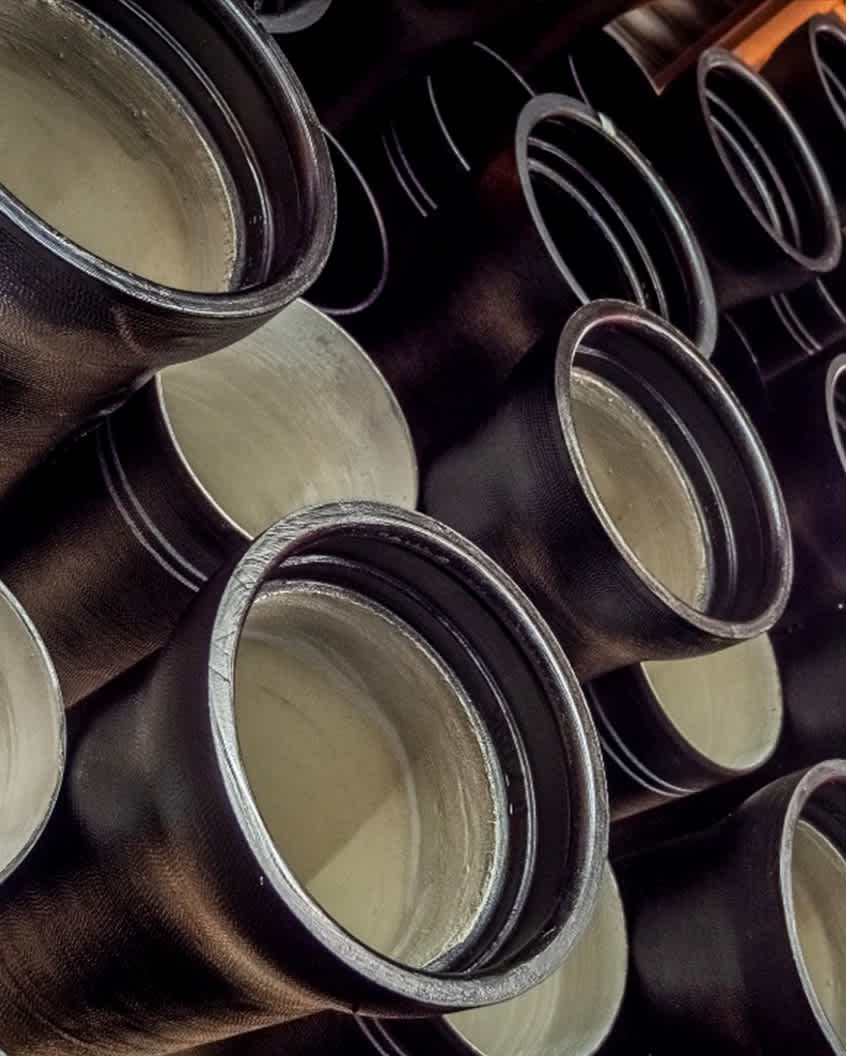Cement-Mortar Lining
Resistance to Soft and Acidic Waters
Waters carry varying amounts of different ions resulting from the disassociation of soluble salts found in soils. Waters that have a very low ion content are aggressive to calcium hydroxide contained in hydrated cements due to the water's low content of carbonates and bicarbonates. Soft waters may also have acidic characteristics due to the presence of free CO2.
When cement-mortar linings are subjected to very soft water, calcium hydroxide, CA(OH)2, is leached out. The concentration of leachates increases with the aggressiveness of the water and its residual time in the pipe and is inversely proportional to the diameter of the pipe. These waters will also attack calcium silicate hydrates, which form the larger portion of cement hydrates. Although calcium silicate hydrates are almost insoluble, soft waters can progressively hydrolyze them into silica gels, resulting in a soft surface with reduced mechanical strength.

Corrosion Control for Ductile Iron Pipe
Design Decision Model (DDM®)
This tool, created in partnership with DIPRA and Corrpro Companies, Inc., is a two-dimensional risk-based model for corrosion control of Ductile iron pipe, balancing the likelihood of a corrosion-related concern against the consequences of such an occurrence. The result is a highly effective, economical corrosion control strategy that gives utility managers confidence that the pipelines they install will provide the reliable service they insist upon for their customers.

